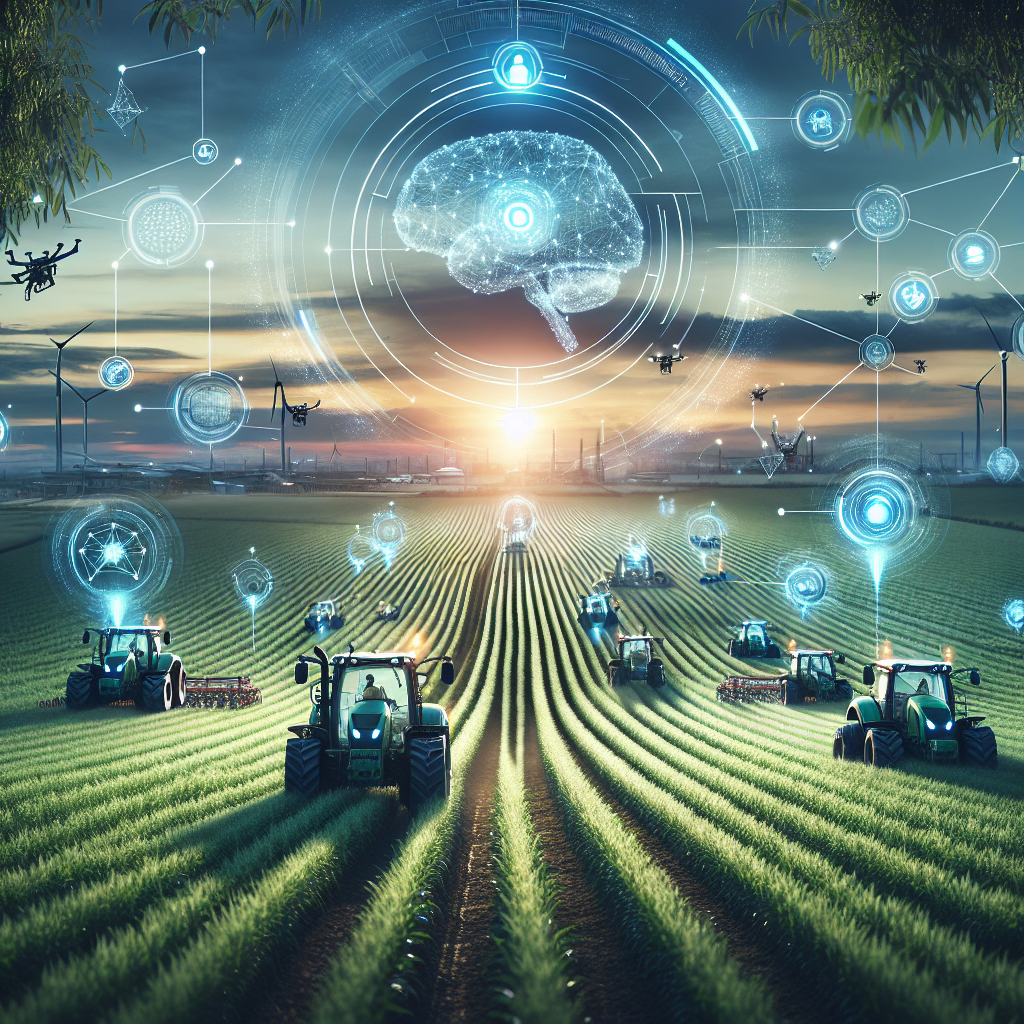Agriculture has always been a vital industry, providing food and resources to sustain human life. However, with the growing global population and the increasing pressures on land and resources, the agriculture sector faces numerous challenges. In recent years, artificial intelligence (AI) has emerged as a powerful tool that is revolutionizing the way we approach agriculture. From precision farming to crop monitoring, AI is transforming the industry in ways that were once unimaginable.
One of the key ways in which AI is revolutionizing agriculture is through precision farming. Precision farming involves using data and technology to optimize agricultural practices, such as planting, irrigation, and fertilization. AI algorithms can analyze vast amounts of data collected from sensors, drones, and satellites to provide farmers with valuable insights into their crops and soil conditions. This allows farmers to make informed decisions about when and where to plant, how much water and fertilizer to use, and when to harvest, ultimately maximizing yields and reducing waste.
AI is also playing a crucial role in crop monitoring. By analyzing images and data collected from drones and satellites, AI algorithms can detect diseases, pests, and nutrient deficiencies in crops at an early stage. This allows farmers to take prompt action to prevent crop losses and improve yields. AI-powered monitoring systems can also provide real-time alerts and recommendations to farmers, enabling them to make timely decisions to protect their crops.
Another area where AI is making a significant impact in agriculture is in the field of predictive analytics. By analyzing historical data on weather patterns, soil conditions, and crop yields, AI algorithms can predict future trends and outcomes with a high degree of accuracy. This enables farmers to better plan and manage their operations, reduce risks, and optimize their resources. For example, AI can help farmers determine the best time to plant or harvest crops based on weather forecasts, soil moisture levels, and market demand.
AI is also revolutionizing the way we approach livestock farming. By analyzing data on animal behavior, health, and performance, AI algorithms can help farmers monitor and manage their livestock more effectively. For example, AI-powered systems can detect signs of disease or stress in animals, enabling farmers to provide timely treatment and prevent outbreaks. AI can also help farmers optimize feeding and breeding practices to improve the health and productivity of their livestock.
In addition to precision farming, crop monitoring, predictive analytics, and livestock management, AI is also being used in other innovative ways in agriculture. For example, AI-powered robots and drones are being developed to perform tasks such as planting, weeding, and harvesting crops, reducing the need for manual labor and increasing efficiency. AI is also being used to develop new crop varieties that are more resistant to pests and diseases, tolerant to drought and other environmental stresses, and have improved nutritional qualities.
Overall, AI is revolutionizing agriculture by providing farmers with powerful tools and insights to optimize their operations, increase productivity, and reduce environmental impact. By harnessing the power of AI, farmers can make smarter decisions, improve their efficiency, and ensure food security for future generations.
FAQs:
Q: How is AI being used in precision farming?
A: AI is being used in precision farming to analyze data from sensors, drones, and satellites to optimize agricultural practices such as planting, irrigation, and fertilization. AI algorithms can provide farmers with valuable insights into their crops and soil conditions, enabling them to make informed decisions to maximize yields and reduce waste.
Q: How is AI revolutionizing crop monitoring?
A: AI is revolutionizing crop monitoring by analyzing images and data collected from drones and satellites to detect diseases, pests, and nutrient deficiencies in crops at an early stage. This allows farmers to take prompt action to prevent crop losses and improve yields, ultimately increasing productivity and profitability.
Q: How is AI being used in livestock farming?
A: AI is being used in livestock farming to monitor and manage animals more effectively. By analyzing data on animal behavior, health, and performance, AI algorithms can help farmers detect signs of disease or stress in animals, optimize feeding and breeding practices, and improve the health and productivity of their livestock.
Q: How is AI being used to develop new crop varieties?
A: AI is being used to develop new crop varieties that are more resistant to pests and diseases, tolerant to drought and other environmental stresses, and have improved nutritional qualities. By analyzing genetic data and breeding patterns, AI algorithms can help farmers breed crops that are better suited to their specific needs and conditions.

